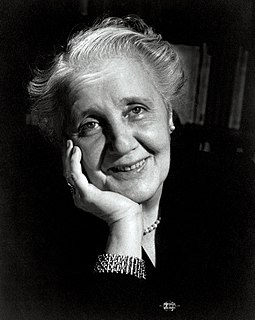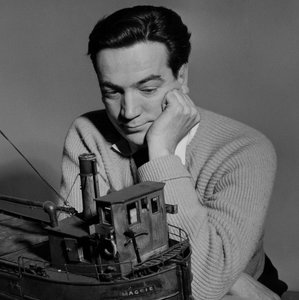A Quote by Melanie Klein
One of the many interesting and surprising experiences of the beginner in child analysis is to find in even very young children a capacity for insight which is often far greater than that of adults.
Related Quotes
Although we like to think of young children's lives as free of troubles, they are in fact filled with disappointment and frustration. Children wish for so much, but can arrange so little of their own lives, which are so often dominated by adults without sympathy for the children's priorities. That is why children have a much greater need for daydreams than adults do. And because their lives have been relatively limited they have a greater need for material from which to form daydreams.
So while it is true that children are exposed to more information and a greater variety of experiences than were children of the past, it does not follow that they automatically become more sophisticated. We always know much more than we understand, and with the torrent of information to which young people are exposed, the gap between knowing and understanding, between experience and learning, has become even greater than it was in the past.
Working with children is very different than the way in which I work with adults. I never tell the children the actual truth of the thing that I want them to act. Although children are really into play and play acting, and this is a major part of their existence, they never actually find the playing or acting of adults credible.
The shift from the perception of the child as innocent to the perception of the child as competent has greatly increased the demands on contemporary children for maturity, for participating in competitive sports, for early academic achievement, and for protecting themselves against adults who might do them harm. While children might be able to cope with any one of those demands taken singly, taken together they often exceed children's adaptive capacity.
Children are often envied for their supposed imaginations, but the truth is that adults imagine things far more than children do. Most adults wander the world deliberately blind, living only inside their heads, in their fantasies, in their memories and worries, oblivious to the present, only aware of the past or future.
The new concept of the child as equal and the new integration of children into adult life has helped bring about a gradual but certain erosion of these boundaries that once separated the world of children from the word of adults, boundaries that allowed adults to treat children differently than they treated other adults because they understood that children are different.
Smoking is, as far as I am concerned, the entire point of being an adult. Many people find smoking objectionable. I myself find many - even more - things objectionable. I do not like aftershave lotion, adults who roller-skate, children who speak French, or anyone who is unduly tan. I do not, however, go around enacting legislation and putting up signs.




































